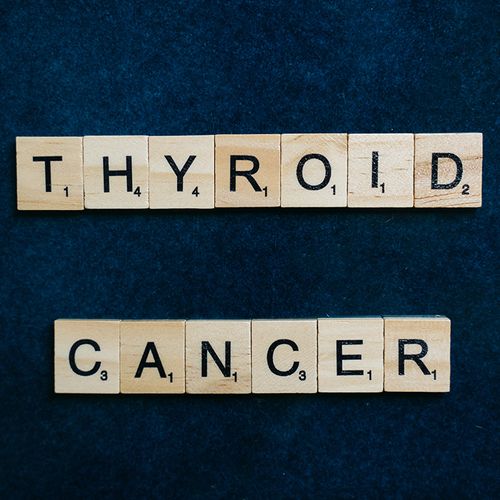A recent study shows that the chemotherapy drug vandetanib (Caprelsa) may extend life for some thyroid cancer patients.
The results of phase 2 trials showed that patients taking the drug lived for 11 months without the cancer progressing, compared with six months for those receiving a placebo.
"This study is confirmation that vandetanib is effective in advanced thyroid cancer patients, not only in terms of overall response, but also in terms of progression-free survival," said lead researcher Martin Schlumberger, MD, of the Institute Gustave Roussy in Villejuif, France. "Vandetanib should be used as first-line treatment in patients with progressive, untreatable thyroid cancer."
Study Details
For the study, Dr. Schlumberger's team randomly assigned 145 patients with late-stage thyroid cancer either to vandetanib or a placebo.
In addition to a longer period when the cancer didn't progress, patients taking vandetanib had their disease better controlled, with more patients having a complete or partial response to the drug, the researchers found.
Among patients taking the drug, 72% had disease progression, compared with 84% taking placebo.
Neither those taking vandetanib or placebo, however, showed better overall survival, the researchers noted. Among those taking vandetanib, 26% died; 29% of those taking a placebo died.
Patients with papillary thyroid cancer-the most common type of thyroid cancer-who took vandetanib had progression-free disease for an average of 16 months, compared with patients with rarer forms of cancer, where progression-free disease lasted an average of almost eight months.
Patients taking vandetanib had greater side effects, including abnormal heart rhythms (which can be deadly), diarrhea, weakness and fatigue, Two patients taking vandetanib died from the treatment, the researchers noted.
Vandetanib works by targeting three proteins known to play a role in the growth and spread of thyroid cancer.
A month's supply of vandetanib can cost more than $10,000, according to the American Society of Clinical Oncology.
Improved Survival For Advanced Cancer
If caught early, thyroid cancer is often curable. "Typically, we talk about thyroid cancer being the great cancer," said Dennis Kraus, MD, director of the Center for Head & Neck Oncology at Lenox Hill Hospital in New York City. "If you've got to have a cancer, this is the one."
In most cases of thyroid cancer, the risk of dying of the disease is 1%, Dr. Kraus noted. Treating the disease usually involves surgically removing the thyroid and the lymph nodes if they are involved. In addition, patients can receive radioactive iodine.
"It's only the minority of patients who...develop recurrent disease or metastatic or locally advanced cancer, who go on to die of their disease," Dr. Kraus said.
With vandetanib, these types of patients may have improved survival, Dr. Kraus said.
"It's not a panacea," he said. "But in a group in which we thought we had no viable treatment, we now have something we can try to treat people with and either control their disease or prolong their survival."
Nausea Meets Its Match
Nausea and vomiting were reduced in more than half of 80 cancer patients who took the antipsychotic drug olanzapine (Zyprexa) after not being helped by standard antinausea medication.
Theory: Olanzapine is thought to help prevent chemotherapy drugs from activating the brain's "vomiting center," which triggers chemo-related nausea. Side effects of olanzapine include depression, difficulty walking, and difficulty falling or staying asleep. Elderly patients with dementia should not take this drug because it may increase their stroke risk.
